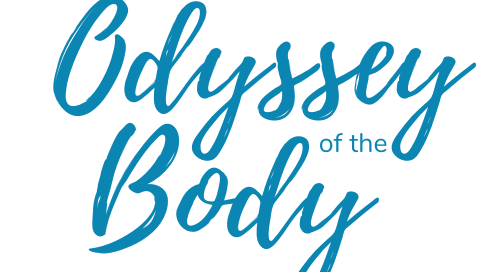Field Notes: how it feels to have ADHD, new hope for malaria, & a way to reduce sexism in kids
Plus, "The Ice Age," a moving essay on the experience of depression
Hello, dear friends! This week’s Field Notes — a collection of 6 interesting things I’ve run across lately related to our bodies and living well — includes two powerful essays that offer glimpses into the experiences of living with depression and of living with ADHD. Both of those are so widely experienced and yet so misunderstood.
1} “The Ice Age” by Dan Leach (The Sun magazine) — A moving essay about the experience of depression, told in little moments at work, at home, in childhood, through time. “I could see others finding happiness, but whenever I approached it, an invisible sheet of ice stopped me from getting any closer. I could never cross over to the other side; I could only pound on the ice that never cracked.”
2} A Simple Way to Reduce Sexism in Kids — Melinda Wenner Moyer describes research that shows labeling groups that, in a context, don’t really need to be labeled makes kids notice them and be more likely to be biased against the group they are not part of it. It seems like such a tiny thing, but making the default greeting “boys and girls,” dividing the tables by boys and girls, having kids line up boy-girl-boy-girl, pitting a boy team vs. a girl team — all drive home the message to kids that gender is a critical grouping. “Gender labeling is very, very important for developing gender bias,” explains psychologist Rebecca Bigler.
3} An overdose drug is finally over-the-counter. Is that enough to stop the death toll? (NPR) — In 2022, a record 100,000 people died of a drug overdose in America. Narcan, a safe medication that can reverse an overdose, is now available without a prescription. But it’s not in all stores and not particularly cheap at $45 or so a dose. "We should not be under any illusion that this is going to meaningfully change things for a lot of people," said Shoshana Aronowitz, a family nurse practitioner and assistant professor at the University of Pennsylvania's School of Nursing in Philadelphia, who emphasized that it’s a tiny step in the right direction. What surprised me is that while the brand-name Narcan is available now over the counter, the generic (aka, likely cheaper) version, naloxone, is not. What? Why? There is a workaround: in many states, an emergency order requires a pharmacist to allow you to buy naloxone without a prescription if you ask for it — but who will know that?
4} A physician's perspective on 'Dead Man Walking,' the opera. (Inside Medicine newsletter) — Dr. Jeremy Faust writes about the overlap between his interests in music and medicine when he attends a new opera, a “deeply affecting and beautiful piece of art,” in New York City. “I almost canceled at the last minute. Fatigue and inadequate sleep would have been easy scapegoats. But in reality, I think something else was tugging at me to stay home: I had become afraid of this opera. I knew that the piece ends with a realistic portrayal of an execution by lethal injection. As a physician, a scene of death by lethal injection represents the pinnacle of cognitive dissonance: all the accoutrements of modern medicine, being used to kill, instead of to heal or alleviate suffering. I didn’t want to see it.”
5} A 'dream' come true: Now there are 2 vaccines to slash the frightful toll of malaria (NPR) — "As a malaria researcher," WHO Director-General Tedros Adhanom Ghebreyesus said, "I used to dream of the day when we would have a safe and effective vaccine against malaria. Now we have two.” This week, the World Health Organization recommended a second vaccine, which is designed for babies and toddlers 5 months to 3 years old, who are especially at risk of the disease. Malaria, which can be fatal if left untreated, is a very real and dangerous risk in Africa. In 2021, about 619,000 people died in Africa of mosquito-borne illnesses and most of them were children. These vaccines can make a real difference, experts say. Happy, hopeful news.
6} Please will you pump my gas? What I wish people without ADHD understood about my brain (Behind the Book newsletter) — Ijeoma Oluo lists 7 “things that a lot of people who love people with ADHD don’t understand, that I really wish they did.” This non-ADHD reader found them enlightening and surprising. Example: “6. We don’t have more things that are hard for us than people without ADHD, they are just different things. Everyone has struggles. Everyone has tasks that they avoid like the plague. Everyone has areas of their life where they feel like they are just not up to scratch. But we’ve normalized the things that people without ADHD struggle with. Oh you hate taxes? Shocking. Reply-all emails? Join the club. … But do you know what I really hate and try to avoid at all costs? Pumping gas. I hate it. Oh I hate it so much. When I absolutely have to pump gas I only put like $5 in. Sometimes I can get myself to put in $10 or $15. That’s it. And when I’m done I want to take a —ing nap.”
I love it when someone turns the world around and lets you see it from their perspective.
I hope you found something illuminating or helpful to you here today.
To our journeys,
Brianne



